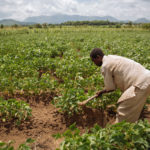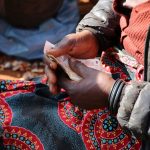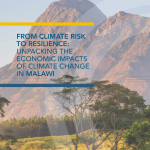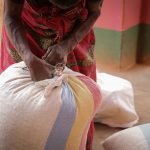Abstract: This study examines the adoption of sustainable agricultural intensification practices—particularly cereal-legume intercropping—by smallholder farming households in Malawi. The focus of the study is on how spatial variation in key factors related to agricultural production and marketing influences farming households’ decision-making processes under risk. Separate analyses are done for six distinct agroecological zones in Malawi […]
Expecting too much, foreseeing too little? Behavioral explanations for the sell low-buy high puzzle in smallholder market participation
Abstract: It is often observed that smallholder farmers sell most of their marketable surplus immediately after the harvest when seasonal price movements reach their lowest point, instead of waiting just a few more months until prices recover. Most explanations for this seemingly sub-optimal behavior focus on economic or infrastructural issues, such as credit constraints or […]
From climate risk to resilience: Unpacking the economic impacts of climate change in Malawi
Climate change is not projected to materially alter Malawi’s climate profile. Instead, it is likely to exacerbate existing climate vulnerabilities by increasing the frequency and intensity of cyclones, floods, and droughts. This is largely due to increased uncertainty around future precipitation levels. These adverse effects have already started to materialize and are expected to increase […]
Seasonality and Smallholder Market Participation in Malawi: A Baseline Report
Smallholder farmers in low and middle income countries often sell the bulk of their marketable surplus immediately after the harvest, when prices are at their lowest. As part of a field experiment that tests the effectiveness of both income and expenditure planning to nudge farmers into delaying sales of cash crops, we collected detailed information […]
Strengthening Producer Groups as ICT Hubs for Improved Incomes and Food Security: Quantitative Baseline Report
This report summarizes the baseline data of 118 producer groups being targeted as impact information and communication technology (ICT) hubs under the Scaling up Radio and ICTs for Enhanced Extension Delivery (SRIEED) II project. A total of 1,012 members of these groups (6–10 randomly selected members in each group) provide the sample for the impact […]
- 1
- 2
- 3
- 4
- Next Page »





